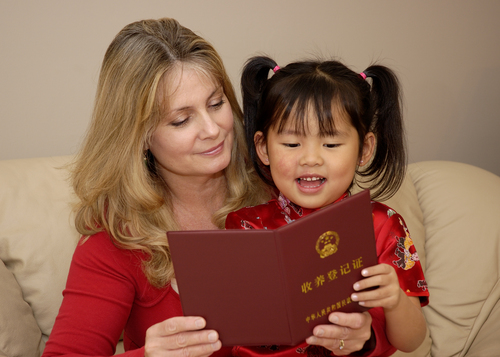In China, the Communist party is considering allowing couples to choose, freely choose, the number of children they wish to have. I italicize those words because they represent a stunning volte face from a decades-long antenatal policy of forced abortion, forced sterilization and harsh punishment for violators.
The party is worried about a demographic crisis limiting economic growth. But the party is also worried about admitting that the One Child Policy might have been a bad idea, and that the suffering it caused was not only unjust, but worse than useless.
To me this is not something of passing interest, a mental side-step into the strange and sad experiences of others. There is a victim of the policy who lives in our house, quiet and thoughtful, occupying a much larger area in our minds than her thin little body does in space.
She is our youngest child, and she was abandoned on a sidewalk on a cold night in China at the age of approximately three days.
Imagine that: a five-pound newborn with a shock of black silkiness on the top of her head, delicate tiny fingers clutching at nothing, rosebud mouth rooting in vain, eyes shut against the frigid wind. That was my beloved, skirting death by a hair’s-breadth with a warm quilt tied tight around her, possibly by her dear mother and father, who couldn’t keep her.
You can see I’ve spent a lot of time thinking about the moment, the laying down on the pavement. She wasn’t thrown down carelessly or tossed aside. She was laid down carefully in hopes that life would find her. And it did.
First in the shape of a passerby who took pity on her and brought her to a police station, though he could have hurried past as others had done. Then in the shape of two women in a bursting orphanage who cared for over a dozen infants at a time in alternating, exhausting shifts.
Then, finally, in the shape of me, a woman who sees in the child perfect, living proof that there is a God and that He loves the woman much more than she deserves.
That’s a lot of life for one little girl, who is also blessed with a good father, brothers, sister, grandparents, faith, American citizenship and a little black dog that she adores.
In glaring contrast stand the millions whom life didn’t find. Too many to count were aborted, the mothers and fathers very often under great pressure and fierce coercion. Sometimes the poor mothers were tied down, and their labors induced — labors made immeasurably painful by the despair of knowing sure death awaited the premature baby.
Countless born children, mainly girls and disabled boys, were abandoned like my daughter, but didn’t survive the exposure or the orphanage. Others grew up in the piteous social welfare institutes where the vast majority of children never find a family.
Orphans in China are adopted only by foreigners, as there is no culture of adoption there, no Christian teaching to “help the widow and the orphan” informing their practices and policies. For some time, a few thousand made it out each year like my daughter did, but this escape route was drastically reduced in 2006. It is said that the communist government felt it looked bad — to be running the kind of country where the abandonment of baby girls was an everyday occurrence, and adopting them out to eager foreigners a way to raise funds.
It is said now that the Chinese people may not be able to find their way back to having two or more children. Economic pressures, career expectations for women, housing difficulties and just the long acculturation of the One Child Policy are all working against rising fertility.
And of course, there are the many missing women, eliminated by sex-selective abortion and infanticide, who are not around to procreate.
I hope that the Chinese can find their way back to a joyous, rising fertility. A world with more children like my daughter in it will be a better world.
And a China where mothers and fathers welcome their daughters and sons into the world, knowing they won’t have to lay them down on sidewalks, will be a better China.
Dr. Grazie Pozo Christie grew up in Guadalajara, Mexico, coming to the U.S. at the age of 11. She has written for USA Today, National Review, Washington Post and the New York Times, and has appeared on CNN, Telemundo, Fox News and EWTN. Her Angelus column, “With Grace,” earned a Catholic Press Association award for “Best Regular Column: Family Life” in 2018. She practices radiology in Miami, Florida, where she lives with her husband and five children.
Start your day with Always Forward, our award-winning e-newsletter. Get this smart, handpicked selection of the day’s top news, analysis and opinion, delivered to your inbox. Sign up absolutely free today!

